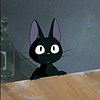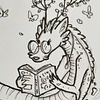Take a photo of a barcode or cover
Reviews tagging 'Racism'
Braiding Sweetgrass: Indigenous Wisdom, Scientific Knowledge, and the Teachings of Plants by Robin Wall Kimmerer
75 reviews
This book both fits into and expands my spiritual world. Robin Wall Kimmerer's cultural and scientific knowledge was new to me but is taught by a loving teacher (and Kimmerer's own voice in the audiobook added warmth to the lesson). I cried, I smiled, I thought of the Lorax, and I wholeheartedly recommend this book to anyone who walks on this earth.
Graphic: Colonisation
Moderate: Racism
Let’s be real: Kimmerer could write a botanical dissertation in her sleep and still outclass your average nature writer before breakfast. She’s a professor of environmental biology and an enrolled member of the Citizen Potawatomi Nation, which gives her a double PhD in science and lived Indigenous experience. Her research isn’t just cited; it’s lived, braided, and tended with tobacco offerings. She doesn’t just drop stats; she builds a relationship with grass. Literal grass. Her experiments on sweetgrass harvesting are robust, scientific, and interwoven with cultural insight that humbles Western academia into a silent corner.
This book is a genre-defying unicorn. It’s science! It’s memoir! It’s poetry! It’s a ritual in prose! Kimmerer doesn’t just “blend” Indigenous wisdom and Western science—she braids them together with such ease that I started wondering if sweetgrass should replace peer-reviewed journals. Her voice is rooted, reverent, and rebellious all at once. I’ve read a lot of environmental writing, and trust me, nothing else sounds like this.
Her prose is so lush I wanted to roll in it like a dog in fresh-cut hay. She's lyrical without being pretentious, wise without being preachy. That said, it is a long read. Sometimes the poetic pacing slows to a dreamy crawl, and I had to shake myself like, “Wait, was that a full page on raindrop metaphysics?” But even when she’s meandering, the language is gorgeous. Think Mary Oliver meets a mossy forest floor.
This book didn’t just change how I think about nature—it rewired the entire motherboard. It made me want to apologize to every plant I’ve ever neglected. I found myself rethinking consumption, relationship, and reciprocity. Kimmerer doesn’t demand change; she seduces it with grace, making the sacred feel tangible and the ordinary shimmer with meaning.
Did I devour every chapter like a snack made of sass and soul? Almost. While most essays pulled me in like a good myth, a few felt like meditative strolls through very quiet, very misty forests—beautiful, but not exactly page-turners. Still, her narrative voice is warm and inviting, like a fireside storyteller with a PhD and a killer side-eye for colonizers.
Kimmerer delivers her science with a poet’s pen and a teacher’s clarity. I got crash courses in ecology, plant behavior, and Indigenous philosophy, all without once feeling like I needed a glossary or a nap. Her arguments are tightly reasoned, emotionally compelling, and often subversive in the best way possible—turning conventional science on its head while still using it like a pro.
Reading Braiding Sweetgrass felt like receiving a blessing wrapped in stories. I laughed, I sighed, I texted friends excerpts like the annoying book evangelist I am. Would I recommend it? Absolutely. Would I re-read it? Already started. This isn’t just a book. It’s an offering. And I’m still untying the ribbons.
If you don’t love this book, I’m not saying you’re wrong... but I will definitely be side-eying your houseplants for signs of spiritual distress.
Moderate: Racism, Grief, Death of parent, Cultural appropriation, Colonisation
Minor: Death, Emotional abuse, Classism
Moderate: Animal cruelty, Animal death, Death, Genocide, Racism, Grief, Cultural appropriation, Colonisation
The book has its basis in science, but Kimmerer explains ecological processes so deftly and poetically that it's easy to take in. Even if you don't understand everything, the language and writing style clearly shows her love and respect for the topic. The chapters range in length and topic, but a few of my favourites include the erasure of indigenous languages, stories of tapping maple syrup trees, and rituals performed in thanks for the land.
The book acknowledges and discusses the role of indigenous knowledge in scientific understanding of the Earth and how to live in balance with our land. After reading this, I felt more compelled to pause when hiking to accept the landscapes around me and feel gratitude for them. Braiding Sweetgrass is a non-fiction book I'd recommend to almost everyone as essential reading.
Rating: 4.5/5
Read more on Wordpress at Bookmarked by Ash: https://book990337086.wordpress.com/
Graphic: Animal death, Genocide, Forced institutionalization, Colonisation
Moderate: Death, Racism
I could have done without the whiff of gender essentialism, with men as fire keepers and women as water bearers, and motherhood as one of the essential stages of a woman's life. But other than that one small complaint, this book was awesome.
Moderate: Animal death, Death, Racism
Graphic: Animal death, Racism, Xenophobia, Vomit, Colonisation
Moderate: Death, Genocide, Cultural appropriation
Minor: Cannibalism
Graphic: Genocide, Forced institutionalization
Moderate: Racism, Grief, Religious bigotry, Colonisation
Minor: Fire/Fire injury
Moderate: Genocide, Racism, Colonisation
Moderate: Racism, Sexism, Forced institutionalization, Religious bigotry, Colonisation
Minor: Animal cruelty, Animal death
By sharing her lived experiences in reclaiming, remembering, and honoring practices kept alive by her own and other indigenous lineages (US-based), the author invites us to reflect on our own capacities and efforts of being in right relationship with the living world. In this book, I found reflections of how my own struggles of unbelonging and loneliness are linked to a sense of feeling orphaned from land, from wider community. I found deep queries and burning desires within me - not having much framework for being local to anywhere - to embody a more reciprocal and grounded approach to the natural world, to this planet who still feeds and tends to us through all this chaos.
For this and so much more, I feel this is a crucial read to help situate and cultivate hope, courage, and determination within as we journey through these giant waves of grief and renewal with our Mother Earth.
Graphic: Genocide, Forced institutionalization, Colonisation
Moderate: Racism, Grief
Minor: Animal death, Suicide, Violence, Fire/Fire injury







